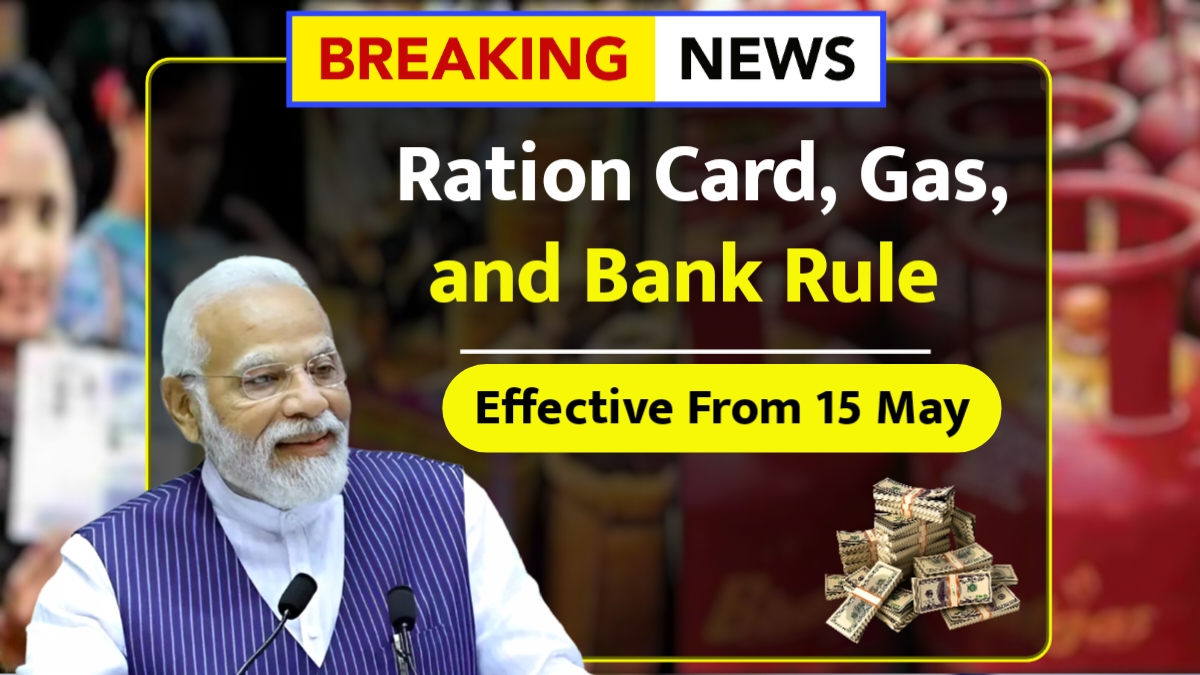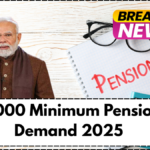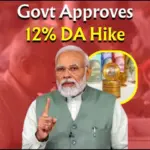The Indian government has announced important rule changes that will affect ration cards, gas cylinder subsidies, and bank accounts starting from 15 May 2025. These changes aim to increase transparency, stop misuse of government benefits, and make sure help reaches the people who really need it. If you are a ration cardholder, gas cylinder user, or bank account holder, here’s what you need to know and do before the deadline.
New Rules for Ration Card Holders
The Public Distribution System (PDS) is getting updated to prevent fake beneficiaries and to make food subsidies more efficient.
Key Changes:
Aadhaar Linking is Mandatory: All ration cards must be linked with Aadhaar before 15 May. Without this, your benefits may stop.
Annual Verification: Every household must update their ration card details every year to keep receiving food subsidies.
Duplicate Cards to Be Cancelled: If any family is found with more than one ration card, the extra cards will be deleted, and action may be taken.
Online Status Checking: New online portals will allow you to check the status of your ration card application and updates.
Biometric Verification: You will need to give your fingerprint or iris scan when collecting ration from shops.
What It Means for You:
If your ration card is not linked to Aadhaar, you will stop getting subsidized food grains.
Outdated family details could pause your benefits.
If you are using a fake or duplicate card, legal action may be taken.
Updated Gas Cylinder Subsidy Rules
From 15 May, gas cylinder subsidies will also follow new rules to ensure only eligible people receive benefits.
Important Changes:
Subsidy Through DBT: The LPG subsidy will now only be paid through Direct Benefit Transfer (DBT) to your bank account.
Aadhaar and Bank Linking: Your LPG connection must be linked to both your Aadhaar and your bank account.
Income Limit Set: Families earning more than ₹10 lakh annually will no longer get any LPG subsidy.
KYC Required Every 2 Years: You must update your KYC details with your gas agency regularly.
Aadhaar OTP for Booking: Booking a gas cylinder may now require Aadhaar-based OTP verification.
What You Should Do Now:
Check whether your gas connection is linked with your Aadhaar and your bank account.
Visit your distributor or log in online to update KYC.
Declare your annual income, if asked.
Mandatory Bank Account Updates
Several banks have announced new rules that every account holder must follow from 15 May onward.
Also Read:
 RBI Launches 3 New Deposit Schemes – Invest ₹2,22,222 in Wife’s Name and Earn Huge Interest
RBI Launches 3 New Deposit Schemes – Invest ₹2,22,222 in Wife’s Name and Earn Huge Interest
Key Updates:
PAN-Aadhaar Linking: If your PAN is not linked with Aadhaar, your bank account may get restricted or frozen.
KYC Updates Now a Must: You need to ensure your address, phone number, and other KYC details are up to date.
Minimum Balance Increase: Some banks have raised their minimum balance limit by up to 20%.
Dormant Account Rules Tightened: Accounts inactive for 12 months (instead of 24) will now be marked dormant.
Steps to Follow:
Visit your bank or use internet banking to update your KYC and link your PAN-Aadhaar.
Keep your account active and maintain the required balance to avoid penalties.
Reactivate dormant accounts easily through online or offline options.
What Happens If You Miss the Deadline?
Missing these updates can lead to serious issues:
Ration Card: You may stop receiving food grain subsidies.
Gas Subsidy: The government will stop sending subsidy money, making your monthly gas expenses higher.
Bank Account: Your account might be frozen, or you could face transaction limits and penalty charges.
How to Quickly Update Your Details
Ration Card: Visit your state’s PDS portal or local ration shop with your Aadhaar card.
Gas Connection: Use your gas agency’s website or contact the customer helpline.
Bank Account: Log in to your internet banking or go to the nearest bank branch for updates.
Final Words
These changes are designed to make sure that only the right people receive government benefits and that systems are fair for everyone. Make sure you take all the necessary steps before 15 May 2025 to avoid any disruption in services. Stay informed and update your documents in time to continue receiving subsidies and avoid problems with your accounts or benefits.













